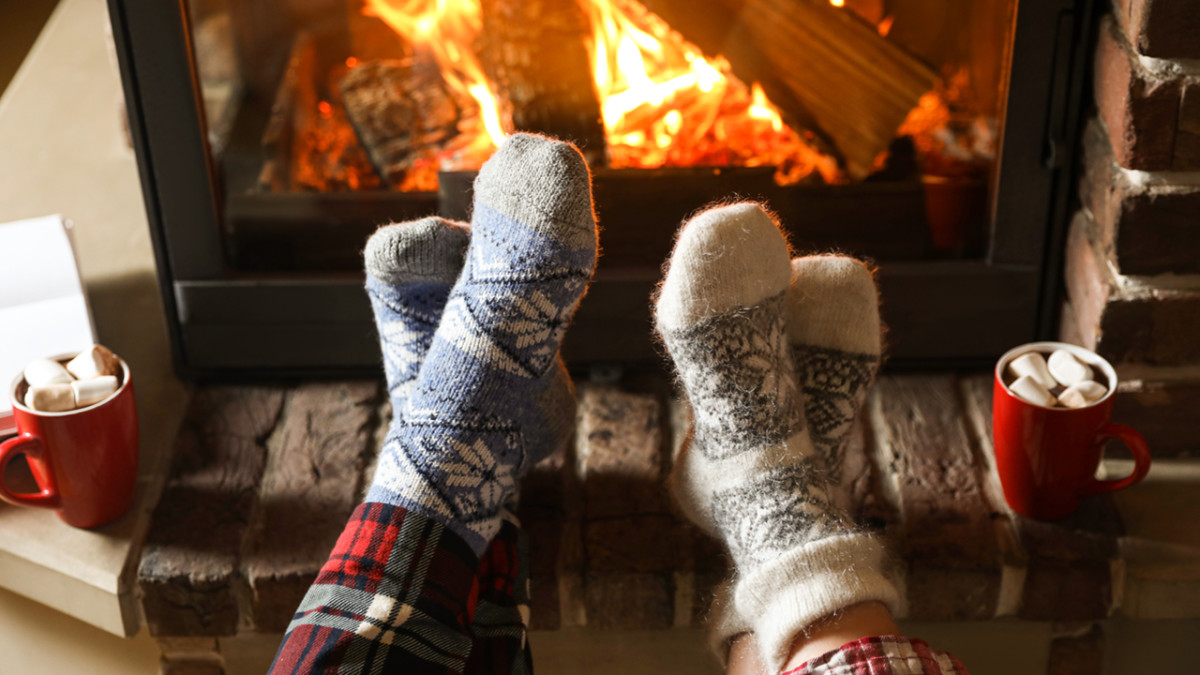Are you and your home or office prepared to keep warm this winter? Use the checklist below to turn up the heat without the hazards.
✓ Has the chimney been cleaned recently?
A dirty chimney can pose a fire risk if flammable debris or residues have built up over time. Before lighting your fireplace for the first time this season, have it inspected or cleaned for safe measure.
✓ Is the garage door open or closed?
Did you know your car releases a carbon monoxide gas that can be poisonous if inhaled, especially in a confined space? If the power goes out this winter or you are desperate to get warm, don’t run your car or light a fire in an enclosed space, like a garage. This can cause a deadly buildup of carbon monoxide.
✓ Is there a carbon monoxide detector in the home?
Carbon monoxide isn’t only released from your car but natural or propane gas lines. Therefore, if your home is heated by any gas or you use any gas appliances such as a gas stove or clothes dryer, you need to have a carbon monoxide detector in your home. Carbon monoxide is a tasteless, scentless gas that most companies scent with rotten eggs, so you have a chance of detecting a leak yourself. However, this isn’t always the case. Carbon monoxide poisoning symptoms appear as fatigue, coughing, inability to catch your breath, passing out and, if left untreated, death.
✓ If you have diabetes, are you aware of specific heating hazards that may affect your health?
If you’re diabetic and cold-natured or looking to soothe aching feet or muscles, be very careful! With the lack of feeling you may or may not experience due to diabetic neuropathy, you are at risk of accidentally burning yourself on space heaters, heating pads, hot baths or showers and heated blankets. When using a space heater, make sure it is at least three feet away from you and anything flammable. When using heating pads or other products, make sure you supervise the area you are heating. If you can’t tell how hot something is, have someone else feel it first to avoid getting in a scalding bath or setting the heating device too high.
✓ Is your heater a fire hazard?
Personal heaters can be burn and fire hazards, especially old ones. Most new heaters should turn off if they get tipped over, but many old ones do not and can catch flammable materials on fire. Make sure you place your heater at least three feet away from you and anything flammable. Before leaving the house or the office, turn off and unplug your heater. And always plug your heater directly into the wall outlet. Never use an extension cord or power strip.
✓ Have the gas lines in your home been checked for leaks recently?
Before turning on the heat, it is a good idea to have the gas lines checked and your heating ducts cleaned out. Doing both will give you a sense of security in your heating system all winter long.
✓ Are you relying on your oven to heat your home?
Never use your oven to heat your home! Using your oven to heat your home is dangerous for two reasons: they generate excessive heat and possibly a dangerous amount of carbon monoxide. In addition, they hit everything in the heating hazard triad: fire hazard, burn hazard and carbon monoxide poisoning hazard.
✓ Have you tested your smoke alarms or changed the batteries recently?
If you own lithium battery-operated smoke alarms, the batteries cannot be changed, and the alarms should be thrown out and replaced about every ten years. However, if you use the type of smoke alarm with removable batteries, those batteries need to be changed out at least once or twice every year to avoid a weak or dead battery. Both alarms should be tested at least once a year to ensure that they are working correctly, and the battery is not weak.
✓ Do you sleep with the bedroom doors shut?
Closed doors save lives! Closed doors slow down fires enough for the people inside the bedrooms to escape or wait for help. Open doors aid the spreading of fire by increasing the natural draft in the home and removing any barrier between the flames and you.
